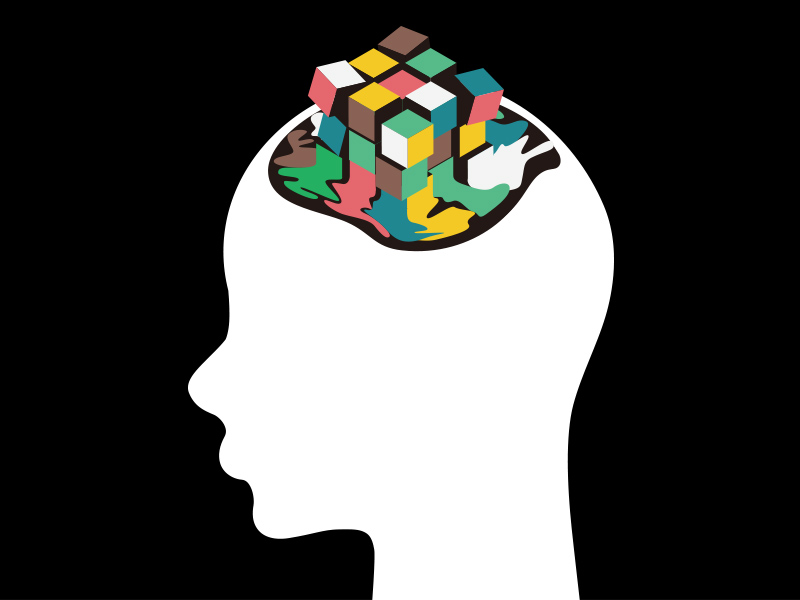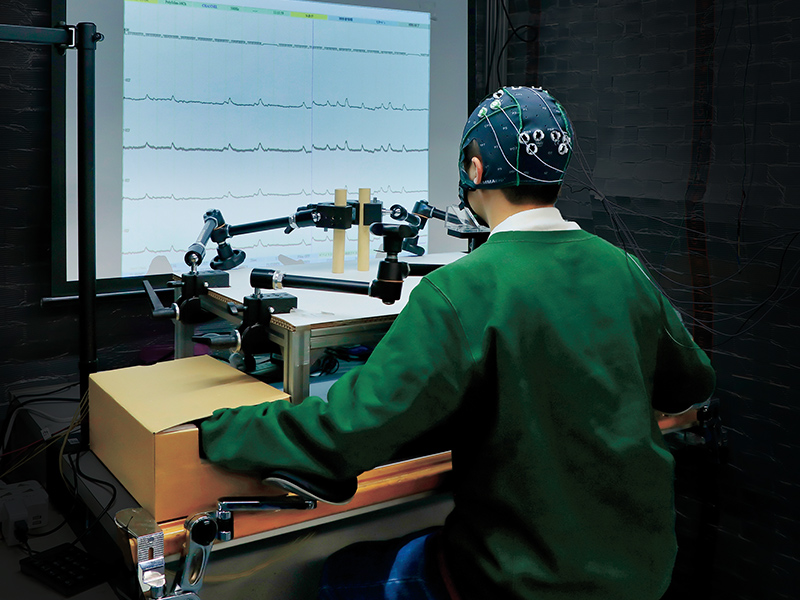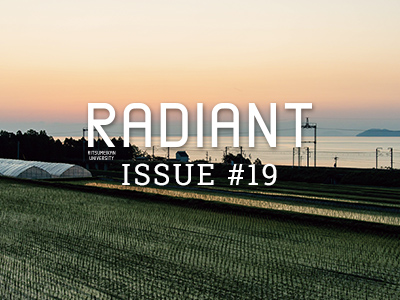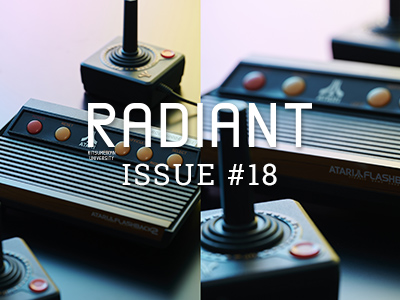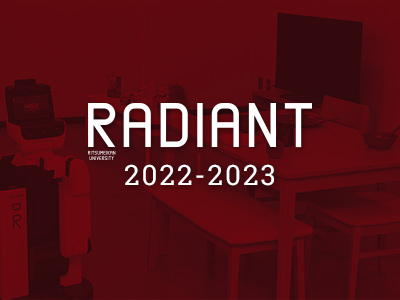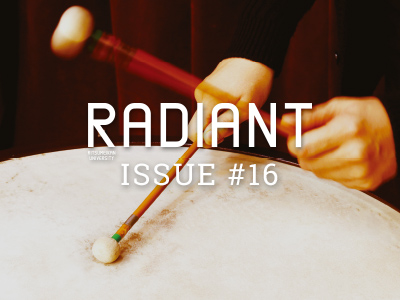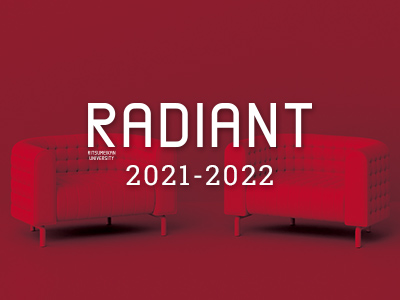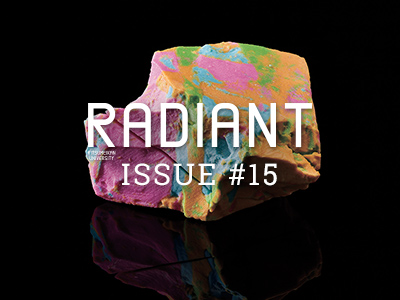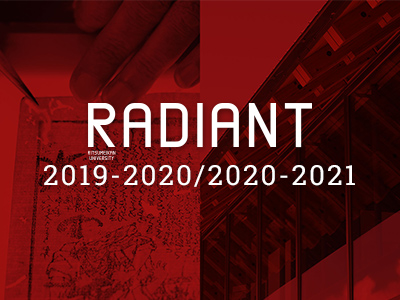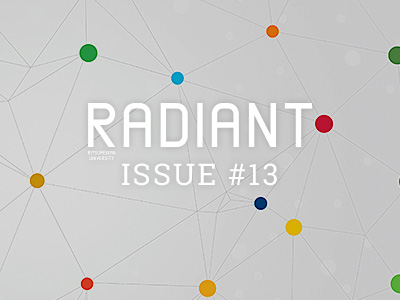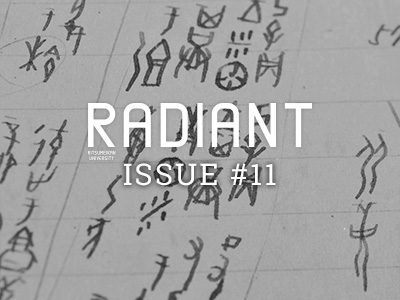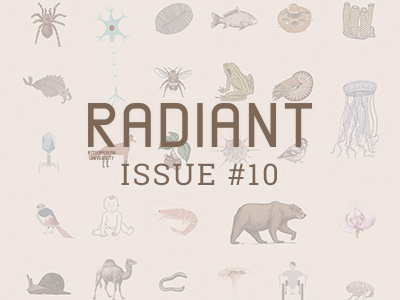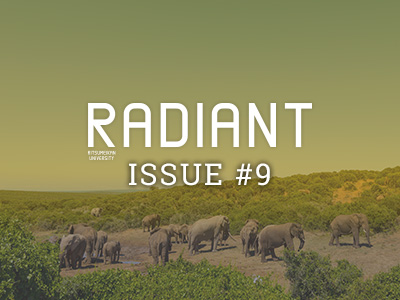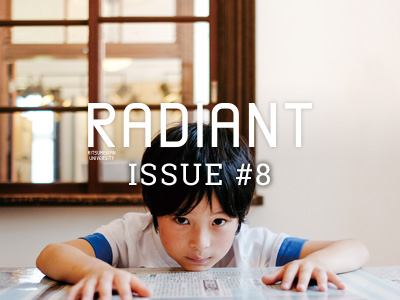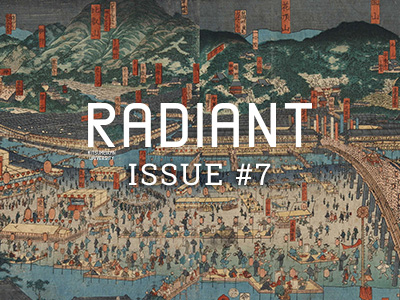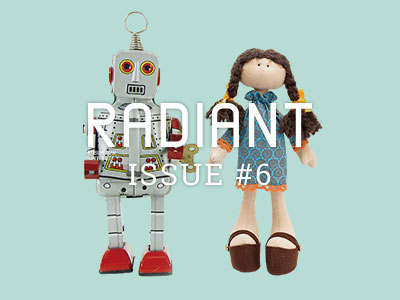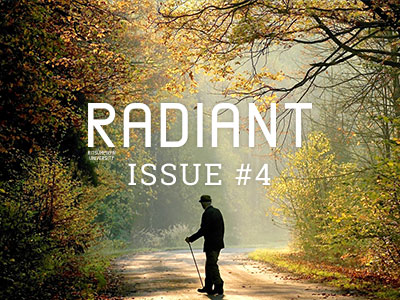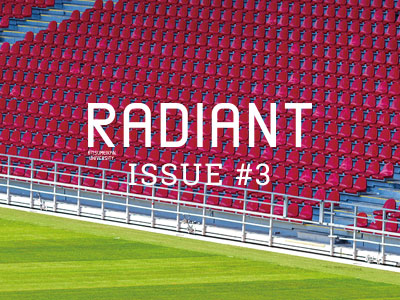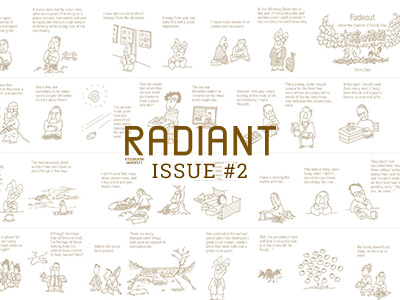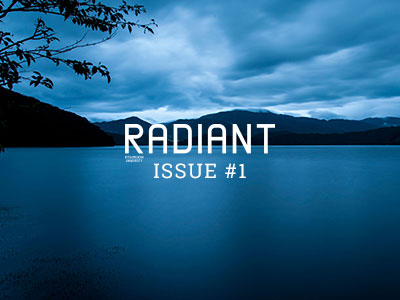STORY #1
A new Way of living,
a new World as seen through Phenomenology
Daisuke Kamei, Ph.D.
Professor, College of Letters
Yumiko Yokota, Ph.D.
Assistant Professor, Kinugasa Research Organization
Our world appears vastly different depending on how we understand what we see. Philosophy seeks to understand both what appears in our sensory perceptions as well as those that do not. This exploration begins by facing what we assume to be obvious in our daily lives. Through the study of phenomenology and deconstruction, Daisuke Kamei and Yumiko Yokota are exploring the richness of life and the world.
Shaking up traditional conceptions from within The philosophy of deconstruction
The first-ever research hub focused on phenomenology in Japan, the Research Center for Intercultural Phenomenology, Ritsumeikan University, was established in 2009.
With the advancement of globalization and in an age where human movement and communication are becoming more complex, encounters with other cultures are now a daily norm. “A simple side-by-side comparisons of various cultures does not reveal the tension between one’s own culture and another’s culture that is evident in their relations as they encounter one another,” states Daisuke Kamei, who has been an integral part of the center since its opening. “Instead of observing another’s culture from the outside, we aim to study interculturality as an internal experience that is engraved in ourselves, and to discover what such an experience is like from within using phenomenological methods,” explains Kamei, regarding the purpose of the center’s establishment.
According to Kamei, phenomenology was first put forth by Husserl, a German philosopher in the early 20th century, and was later carried forward by Heidegger, a fact that had a tremendous impact on many French philosophers. From there, phenomenology spread across Europe, the US, and Asia. Lead by Toru Tani, researchers like Takashi Kakuni who study phenomenology and interrelated fields like German and French philosophy and ethics come together at Ritsumeikan University. For the first five years, they worked on unraveling the structure of intercultural phenomena by focusing on the following five themes: language, meeting and parting, spirit, coexistence, and time. One of the characteristics of the center is that the researchers not only conduct research on interculturality, but they also conduct research interculturally. In addition to proactively interacting and collaborating with domestic and foreign phenomenologists, they have also conducted international joint research and workshops and international symposiums.
Now, after more than a decade since its establishment, the center has grown to be recognized by researchers from around the world as Japan’s preeminent research hub for phenomenology. “We are also pouring our efforts into training young researchers. With graduate and doctorate level dissertations and papers being published one after another, we see a generation on the rise in which we can place our hope,” Kamei speaks with verve.
In anticipation of the next decade, the center is advancing with new themes. Four projects, titled Deconstruction and Critical Theory, 21st Century Ethics, Phenomenology of Interculturality, and The Phenomenology of Art, have been launched, and research is being carried out tirelessly. It is hoped that this center will produce a new language, new concepts, and new culture that would illuminate the next generation.
Kamei, who leads the Deconstruction and Critical Theory research project, focuses on the late deconstruction philosopher Jacques Derrida (1930-2004), who remains influential globally. In his research, among other topics, he is studying Derrida’s relation to German philosophers from the early 20th century, such as Husserl and Heidegger.
“Heidegger was a proponent for the ‘destruction of ontology,’ stating that ‘to think of being,’ it is necessary to first destruct the traditional notions of ontology. Derrida, who carried these thoughts forward, expanded upon the question of being. By shaking up the very concept of knowledge as understood in Europe, he contemplated matters that were incomprehensible till then. This attempt is known as ‘deconstruction.’” Kamei, who provided this explanation, authored Derrida: A Thinking of History (Derrida: une pensée de l’histoire) in an attempt to discover how Derrida formed his thoughts on deconstruction.
According to his book, Derrida began to garner attention for his studies on Husserl’s phenomenology, and published review articles and essays on Rousset, Foucault, Lévinas, and Bataille after 1963. Derrida then authored three publications in 1967: Of Grammatology (De la grammatologie), Writing and Difference (L’écriture et la difference), and Speech and Phenomena (La voix et le phénomène). In researching the subject, Kamei focused on history as a theme, a prominent motif found throughout Derrida’s philosophy. “Those who inherit the language and concepts of the West can only think within a Western conceptual system. In contrast, while inheriting traditional concepts, Derrida aimed to shake up the traditional conceptions from within so that one could be freed from the traditional metaphysical conceptual systems and expand their thoughts to contemplate what was uncontemplatable in the past,” explains Kamei. With this motif as a clue, Kamei read the three books authored by Derrida carefully and thoroughly to clarify Derrida’s thought formation process.
In his studies, Kamei brought up Derrida’s Seminars on Heidegger as key literature that hones into the main theme of history. These are the lectures of all nine sessions Derrida delivered on Heidegger’s book Sein und Zeit (Being and Time), which he had translated and annotated. Kamei was involved in the translation and publication of the Japanese edition. “Derrida translated Heidegger’s originally German work into French. Now, following the English version, we have completed a Japanese translation. We experienced interculturality during its translation, too,” Kamei reflects.
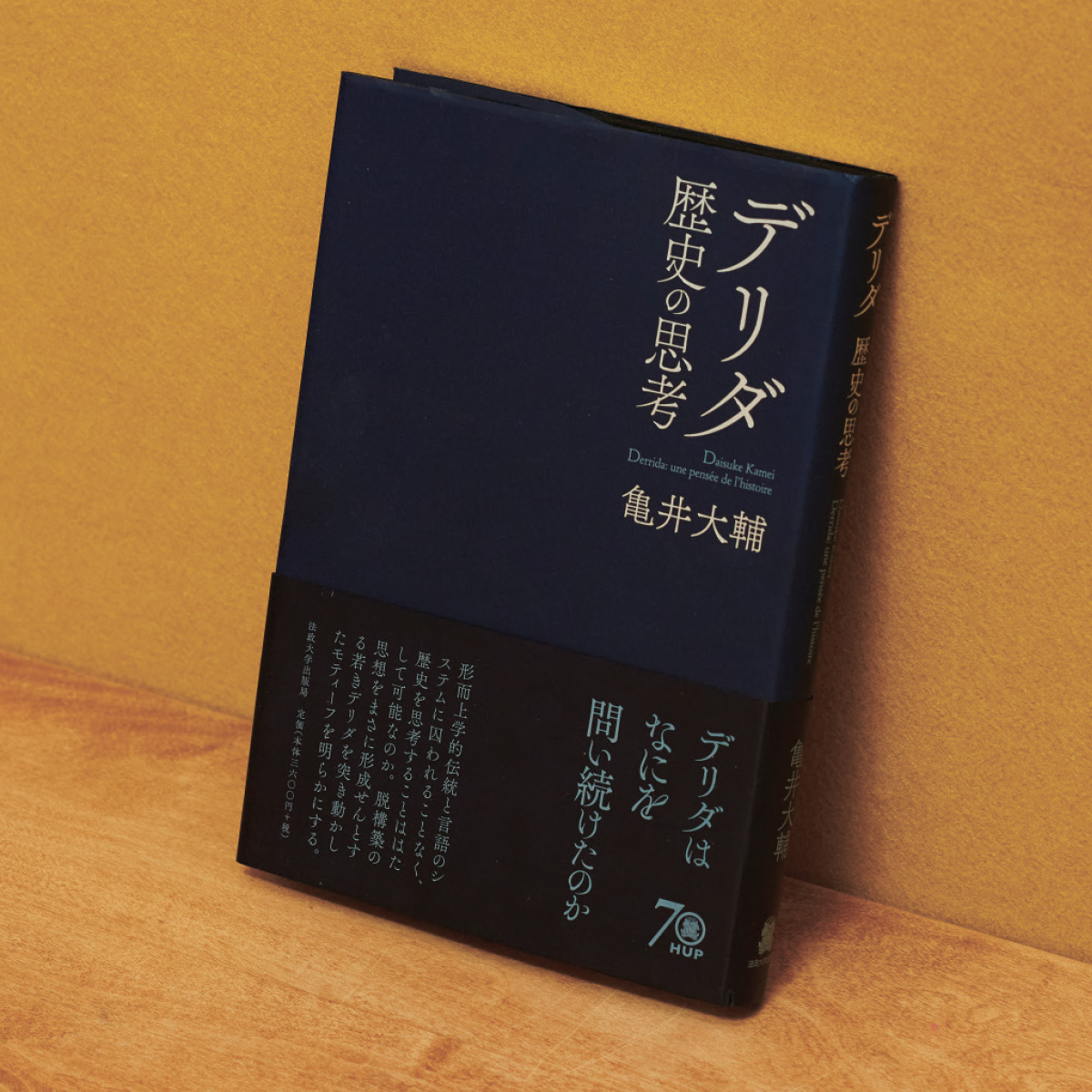
Derrida: A Thinking of History
(Derrida: une pensée de l'histoire)
by Daisuke Kamei
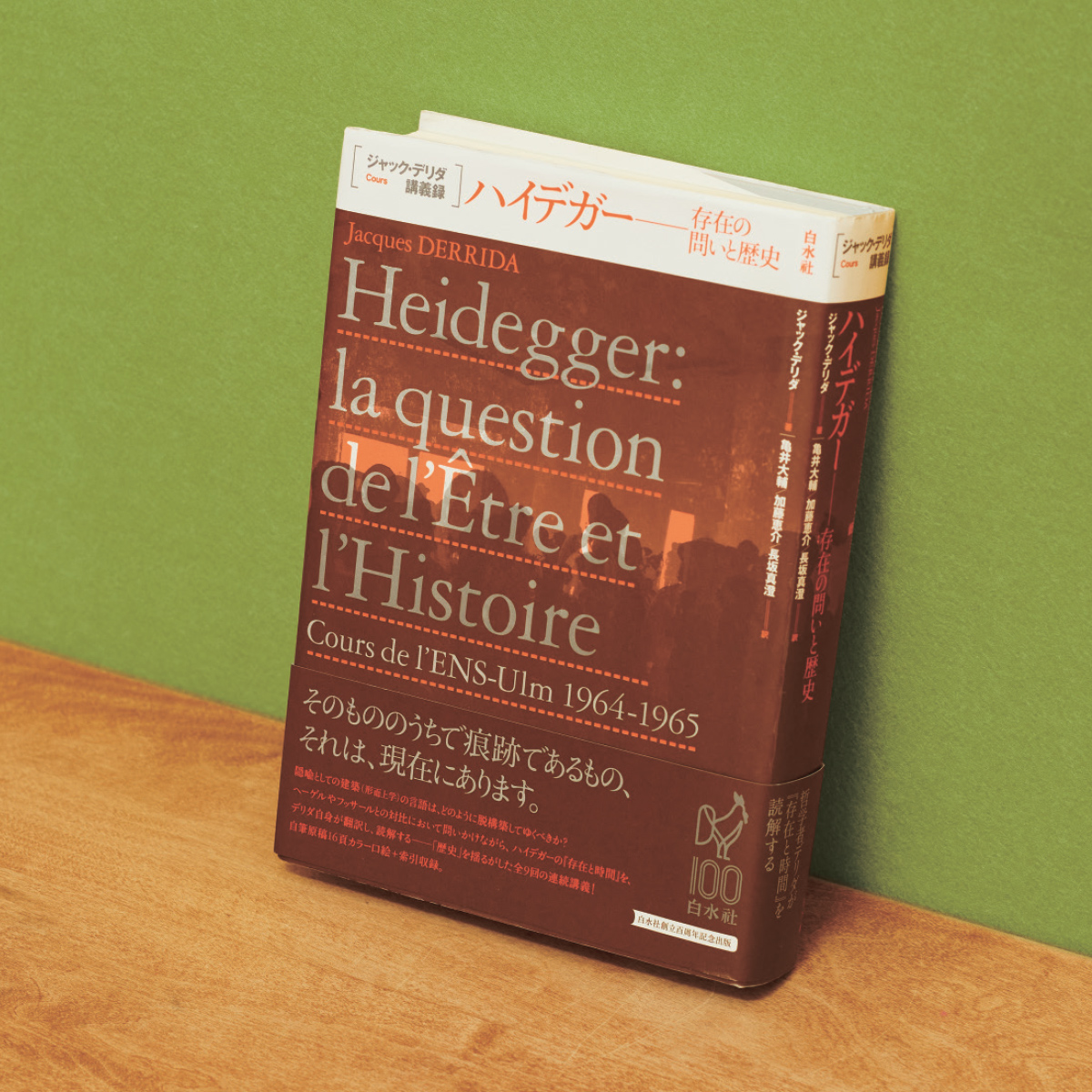
Heidegger: The Question of Being and History
(Seminars of Jacques Derrida)
by Jacques Derrida, Japanese translation by Daisuke Kamei, Keisuke Kato, and Masami Nagasaka
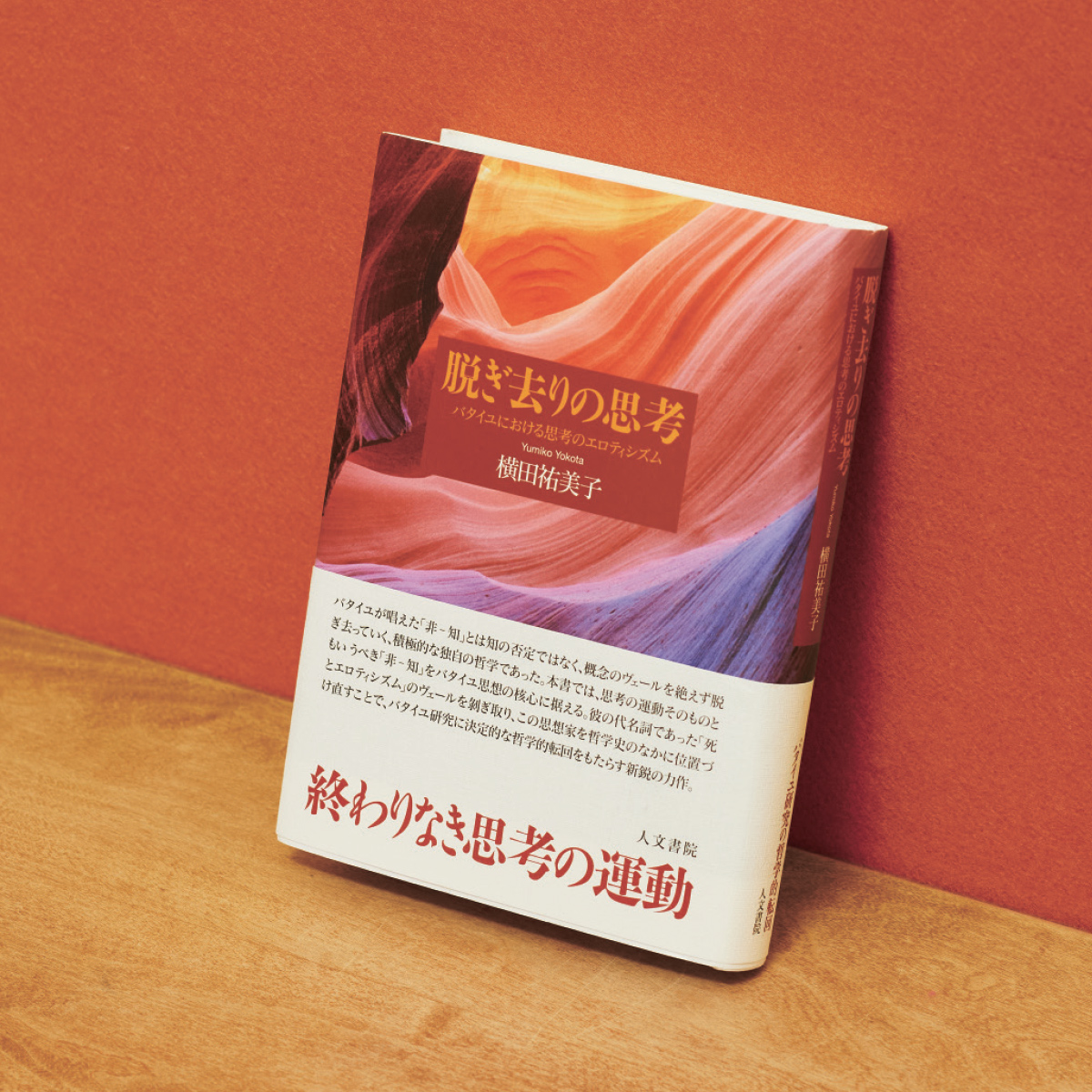
Disrobing Thinking: The Erotism of Thought in Bataille’s Works
by Yumiko Yokota
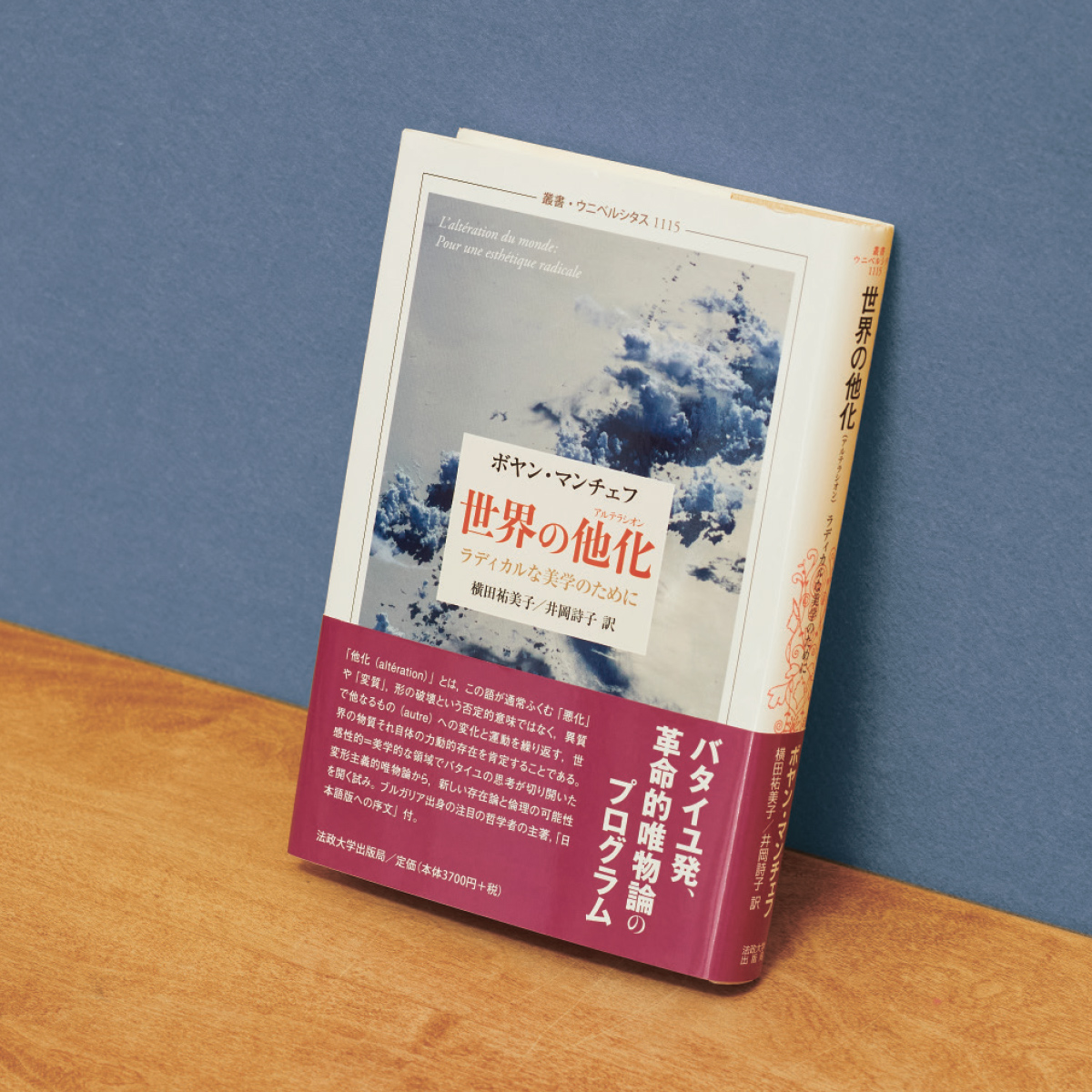
L'altération du monde: Pour une esthétique radicale
(The Alteration of the World: For a Radical Aesthetic)
by Boyan Manchev, Japanese Translation by Yumiko Yokota and Utako Ioka
While accepting conventional wedding ceremonies Practicing deconstruction, that opens new possibilities
Meanwhile, Yumiko Yokota, who currently conducts research under the guidance of Kamei has prepared a detailed report on the practice of deconstruction based on her own wedding ceremony in February 2019 under the theme The Democracy of a Wedding.
In her report, she states, “at every turn during the preparation of the wedding, it was felt that the conventional wedding ceremonies strongly retained the ideas of male chauvinism and patriarchy, making the ceremony a place of transmission and reproduction of such ideas.” So then, by simply going through the motions of traditional ceremonies, manners, and customs, one participates in strengthening and perpetuating such ideas. While realizing this reality, Yokota did not choose to abandon the ceremonial aspect of the wedding. Instead, she said that she aimed at creating a wedding ceremony that transforms the male chauvinistic structure. Yokota explains that the reason for this decision came from the practice of deconstruction as the following: “‘The democracy of a wedding’ is the type of democracy that Jacques Derrida wrote in his book Rogues (Voyous) where there is a rotational system or ‘by turns,’ whereby elements of male dominance and female dominance both come into play in one after the other. By proactively reconceptualizing democracy as something that comes ‘in turns,’ he rejected the hardening of position and power, trying to thus free us from what has been regarded as tradition. It is understood that deconstruction is a strategy to destroy old structures without falling into dichotomy and give rise to new structures. What is important is that, while recognizing the object of criticism, one transforms the structure from within by following its rules.” So, in the case of Yokota, she willingly entered the tradition of a marriage ceremony, dismantled it from within, and opened up new possibilities of what such a ceremony could be. Thus, she demonstrated, in practice, the act of deconstruction.
Furthermore, to make the feminist movement sustainable in this modern day where SNS is at its height, Yokota advocates that while inheriting the legacies of knowledge, we need to forge a new path with that understanding in mind. “For example, the French philosopher Sarah Kofman, who succeeded Derrida’s thinking on deconstruction, unraveled Freud’s theory of femininity, and while retaining the words masculinity and femininity which were used by Derrida, she tried to apply a new meaning different from its conventional meaning. Transmission of legacy, or inheritance, in the philosophy of deconstruction, is to iterate old concepts using a different context than the conventional context, and through this reiteration, to transform and give new life to the accumulated knowledge from the past.”
Yokota, who studies Bataille—one amongst several thinkers who had influenced Derrida—has also tried to re-read Bataille’s texts in a different context. Yokota states that even from Bataille’s discussions of Erotism (L’Érotisme), it is possible to extract feminine thoughts from masculine thought processes.
“Going forward, we will need to continue to create new lines of thinking and movements while following the texts of the philosophers of deconstruction and putting them into practice,” Yokota says. Perhaps this is the path that leads us to a society where all people can live in a manner most suited to themselves, regardless of their gender.

Introduction to 17 books related to Ritsumeikan University’s Research Center for Intercultural Phenomenology published in recent years.
❶ Nature: Course Notes from the Collège de France by Maurice Merleau-Ponty, Dominique Séglard Comp. Ed., Japanese Translation by Shoichi Matsuba and Takashi Kakuni (Misuzu Shobo, 2020)
❷ Dialectic, War, and Decipherment: The History of the Development of Jacques Derrida’s Early Thought by Tomohiro Matsuda (Hosei University Press 2020)
❸ The Middle, the Horizon, and the Hearth: The phenomenology of the Intellectual History of Heidegger’s Concept of Being by Kentaro Otagiri (Hosei University Press 2018)
❹ The Philosophy of Interculturality, Toru Tani Ed, (Bunrikaku 2014)
❺ The Silent Art of Poetry: Merleau-Ponty and the Philosophy of Expression, by Takashi Kakuni ( Koyo Shobo 2017)
❻ Heidegger: The Question of Being and History (Seminars of Jacques Derrida), by Jacques Derrida, Japanese translation by Daisuke Kamei, Keisuke Kato, and Masami Nagasaka (Hakusuisha 2020)
❼ Derrida: A Thinking of History (Derrida: une pensée de l’histoire) by Daisuke Kamei (Hosei University Press 2019)
❽ Merleau-Ponty Reader, Shoichi Matsuba, Hitoshi Hongo, Koji Hirose Ed. (Hosei University Press 2018)
❾ The Problem of Coexistence and its Development in Heidegger: Philosophy, Finitude, and Communality, by Yoshimasa Kurooka ( Koyo Shobo 2020)
❿ Gendai Shiso (Revue de la pensée aujourd'hui), March 2020 Extra Edition: Special Feature = Feminism and the Present, “How would Feminism Inherit its Philosophical Heritage?” by Yumiko Yokota as Contributing Author (Seidosha 2020)
⓫ Merleau-Ponty: The Others that Appear, The Others that Disappear, From the “Child Psychology and Pedagogy” Lectures, by Maiko Sakai ( Koyo Shobo 2020)
⓬ After the End of the World. Critique of Apocalyptic Reason, by Michaël Fœssel, Translated by Yuji Nishiyama, Junichiro Ito, Mieko Ito and Yumiko Yokota (Hosei University Press 2020)
⓭ Radical Atheism: Derrida and the Time of Life, by Martin Hägglund, Japanese Translation by Satoru Yoshimatsu, Takashi Shimada, and Tomohiro Matsuda (Hosei University Press 2017)
⓮ The Phenomenology of Internal Time-Consciousness by Edmund Husserl, Japanese Translation by Toru Tani (Chikuma Shobō 2016)
⓯ Disrobing Thinking: The Erotism of Thought in Bataille’s Works by Yumiko Yokota (Jimbun Shoin 2020)
⓰ L’altération du monde: Pour une esthétique radicale (The Alteration of the World: For a Radical Aesthetic) by Boyan Manchev, Japanese Translation by Yumiko Yokota and Utako Ioka (Hosei University Press 2020)
⓱ Downcast Eyes, The Denigration of Vision in Twentieth-Century French Thought, by Martin Jay, Japanese Translation by Daisuke Kamei, Daisuke Kanda, Masafumi Aoyagi, Yuichi Sato, Takuji Kobayashi and Masatoshi Tanabe (Hosei University Press 2017)
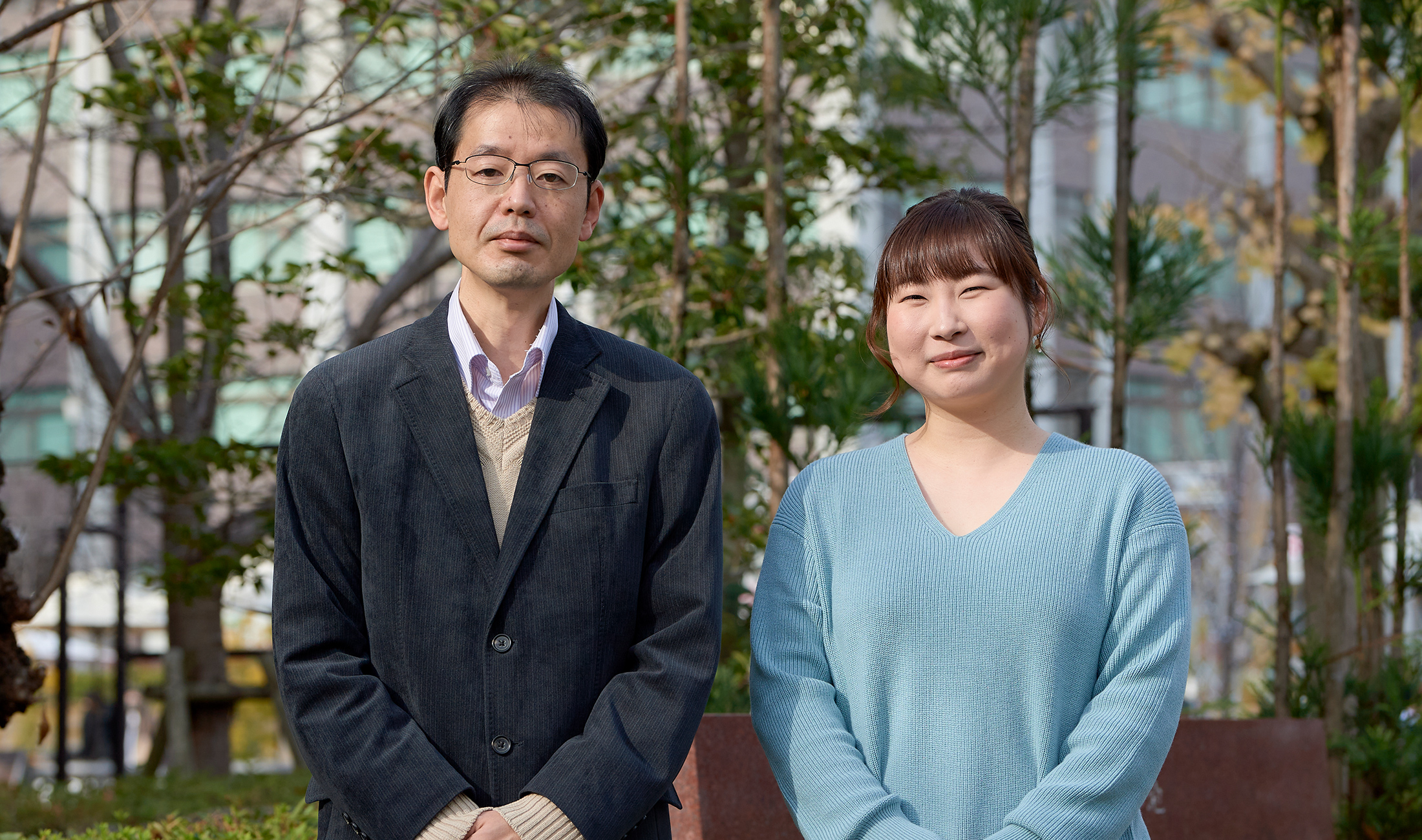
- Daisuke Kamei, Ph.D. (Photo Left)
- Professor, College of Letters
- Specialties: Philosophy and ethics
- Research Themes: The formation and development of Derrida’s Philosophy
- Yumiko Yokota, Ph.D. (Photo Right)
- Assistant Professor, Kinugasa Research Organization
- Specialties: Philosophy and ethics, history of thought, European literature, gender studies
- Research Themes: Philosophical consideration of Georges Bataille’s philosophy, the study of deconstruction philosophy, modern French philosophy, and feminism


